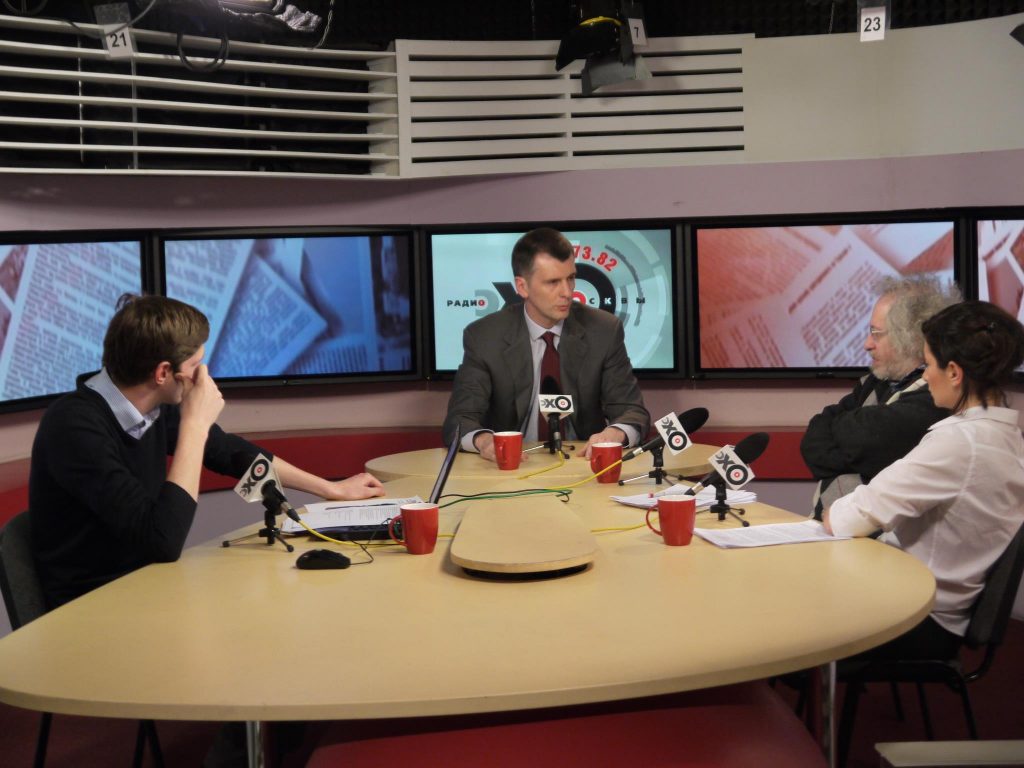
Russia invaded Ukraine on Feb. 24, and on March 8, Russia began enforcing its new legislation that censors — and essentially outlaws — independent reporting. Under this legislation, journalists who describe the war as a “war” can be imprisoned. As a result, many news organizations are pulling reporters and journalists out of the region.
How will this displacement of journalists affect accurate reporting and journalism coverage of the conflict and why did Vladimir Putin find this legislation necessary? Sandra Braman and Tom Burton, both professors in the Department of Communication, answer these questions and more.
Russia’s new legislation criminalizes independent, accurate journalism. How will this affect global news coverage of Russian matters?
Sandra Braman: This is a great loss for Russian citizens and for journalism in general as violence against journalists around the world (including in the US) goes up. It will also dilute global news coverage of Russian matters in important ways, but as long as RuNet, the Russian Internet, is still functioning, we will still receive reports from non-professionals who post what they know through various channels, whether that is via social media, blogs, or email.
Tom Burton: This move makes it more dangerous for journalists to cover the news from inside Russia during the Ukraine invasion. Russia has had state-controlled media to spread propaganda for decades. This expands their control over messaging to anyone in the country.
Several independent media outlets have pulled their editorial teams out of Russia. Is this the right call? Why or why not?
Braman: Unfortunately, yes. It must be assumed that everyone remaining will be arrested, imprisoned, and perhaps tortured and killed.
Burton: Journalists often work in difficult or dangerous situations, but their organizations also have an obligation for their safety. Good editors protect their staff that are working in crisis and trauma zones. The coverage might suffer in the short term, but there are other ways to cover the story.
What might Russia hope to achieve by criminalizing independent journalism?
Braman: Putin is trying to prevent internal resistance to his actions, which is high — not only with the general population (thousands of protesters have been arrested and many more are against the policies but are not currently willing to subject themselves to arrest by protesting in the streets), but also among incredibly rich oligarchs and even one of the Russian oil companies. Independent journalism organizations and individuals have been reporting on internal dissent, so criminalizing this puts a veil of silence in the media on this subject. It is encouraging for anyone who is against the war to know that there are others protesting in their own and other cities, making it easier to make a personal decision to join protests. Without independent journalism, news of this kind will be traveling by word of mouth instead of through the media.
Putin is also interested in preventing people around the world from knowing that there is such internal dissension.
Why is it important to understand Russia’s attack on independent reporting?
Braman: It helps us understand responses to the war on Ukraine within the country and it provides additional information about the increasingly totalitarian nature of Russia’s authoritarian government.
Burton: If we know there aren’t independent journalists working in Russia, then everything coming from the government should be considered unverified and possibly complete fabrications.
How does removing independent journalists affect the flow of information to and from Russia?
Braman: Information getting into Russia about what is actually going on in Ukraine, and what the world thinks of it and is doing or will do about it, goes to more people quickly when it is in the media than when it flows through the Internet, so destroying independent journalism significantly impedes the flow of information to Russia.
However, keep an eye on what happens with RuNet. As long as the internal network is still connected to the global network, information will still get in and circulate among those who have access to the Internet. At the moment the Internet is still running in Russia and experts believe it will remain working because Putin needs it to spread his own messages to the population about what is going on even though the government has spent years systematically setting things up so that it could completely cut its network off and makes unverified and unverifiable claims that it has experimented with doing so successfully.
One kind of cyber-battle going on now that affects news flow both in and out of the country involves Russia trying to cut off things like Twitter from outside the country and those providing services developing technical work-arounds so that the service can still function for communications to and within Russia. Experts also believe that Russia is trying to keep RuNet isolated by transferring all government web pages to local hosts and a domestic addressing system (instead of the global DNS, the Domain Name System managed by ICANN), but full information about the extent to which this is happening and its consequences is not yet available. We do know, though, that Russian citizens are finding technical work-arounds and so far many are managing to remain online and in touch with the world beyond Russia.

